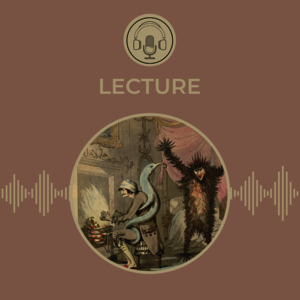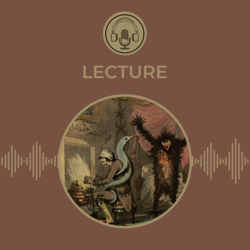 GHIL Podcast
GHIL Podcast

GHIL Joint Lecture
Stefanie Gänger
‘The Most Common and Fatal of All Diseases’
Histories of Fever, 1770-1830
5 September 2025
(0:47 h)

GHIL Joint Lecture
Stefanie Gänger
‘The Most Common and Fatal of All Diseases’
Histories of Fever, 1770-1830
In co-operation with the Modern History Research Seminar, University of Oxford
The talk is concerned with the history of fever and febrile diseases in the French, Iberian, and British empires, from the 1770s to the 1820s, a time when these were widely considered the most common and fatal diseases afflicting mankind. Emphasizing the historicity and cultural contingency of fever and the febrile experience, the presentation explores the concept of disease in the period in question, this ailment’s unusual prevalence at the time, sufferers’ sensory experience of it, and the commonness of ‘sequelae’, that is, of fevers which left sufferers with longer-term damage to their health.
Stefanie Gänger is Professor of Modern History at Heidelberg University. She is a historian of science and knowledge in the long nineteenth century and has published widely on issues including antiquarianism and collecting, self-medication and fever remedies, and the theory of (global) history.
Don't miss the accompanying interview: Chills, aches and hot flushes. What exactly were people describing when they complained of fever around 1800? In this episode, host Kim König and GHIL Research Fellow Pascale Siegrist talk to Stefanie Gänger, Professor of Modern History at Heidelberg University. They discuss the research behind her lecture on the history of fever and febrile diseases in the French, Iberian and British Empires from the 1770s to the 1820s, a period during which these diseases were widely considered to be the world's most common and fatal.